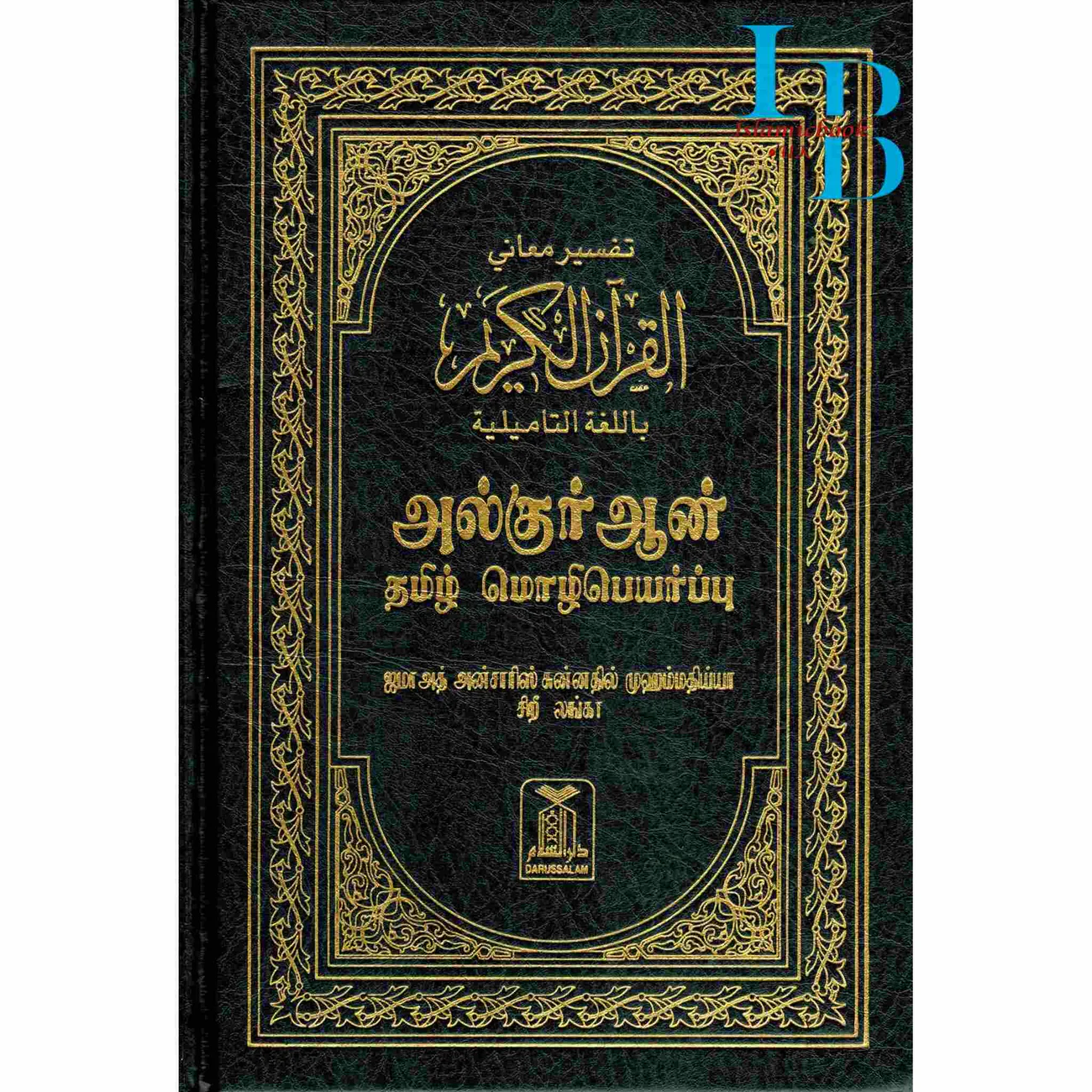The Holy Quran, the ultimate revelation of Allah (SWT) to humanity, remains a source of divine guidance, mercy, and light. As it was initially revealed in Arabic to Prophet Muhammad ﷺ some 1,400 years ago, its universality requires that individuals of all tongues and places gain access to its meanings. For Muslims who speak Tamil, the Tamil translation of the Quran fills that void, allowing them to know, relate to, and live according to the words of their Creator.
The Need for Quran Translation in Tamil
Tamil is among the world’s most ancient and most spoken classical languages, being spoken by more than 80 million people in India, Sri Lanka, Malaysia, Singapore, and other parts of the world. Among them are many Muslims who try to learn and practice Islam. But for those who are not Arabophone, comprehending the direct meaning of the Quran poses a problem.
A dependable and properly explained Tamil translation of the Quran is thus imperative. It not only enables Tamil-language Muslims to understand the messages of Allah, but also enables them to reflect upon its meanings and contemplate its wisdom in their native language. That deepens their spiritual attachment to the text and makes their religious identity more solid.
Challenges in Translating the Quran
Translating the Quran is not just a matter of linguistics. The Quranic Arabic is rich, multifaceted, and divinely inspired. Every word is exact, and where it falls has theological and linguistic significance. It follows that no translation can possibly reflect the full beauty and depth of the original Arabic. What translators try to do is to translate the nearest possible meaning of the text into another language, but preserve its spiritual effect.
In the ancient and emotive language of Tamil itself, the words have to be selected with the utmost care so that the integrity of the original message is preserved. The exercise requires profound knowledge of both classical Arabic and advanced Tamil, as well as robust Islamic scholarship.
Key Features of an Authentic Arabic-Tamil Quran
A well-translated Quran from Arabic into Tamil usually presents both the original Arabic and the Tamil translation side by side. This is particularly useful to readers who want to study Arabic or reference meanings. A good translation does not introduce personal understandings and retains a close adherence to classical tafsir (commentaries) for accuracy.
Some of these also contain concise footnotes that define challenging terms, legal principles, or historical allusions. These footnotes assist the reader in comprehending why each verse is written, making its message clearer without requiring higher-level study.
How the Tamil Quran Affects the Community
Availability of the Quran in Tamil has changed the way individuals study religious texts. For some families, it has become a routine part of daily reading or weekend studies. The elderly who might not understand Arabic can now recite verses in Tamil and memorize their meanings.
Tamil-speaking children are also more likely to develop an early affinity with the Quran. Having access to the Book of Allah in their native language creates love, respect, and a sense to do something about it. It also reinforces religious studies in Tamil-medium madrasas and Islamic schools, so that language is never a point of hindrance to learning the deen.
Popular Translations and Scholars
There have been a number of significant attempts by Tamil-language scholars to translate the Quran. One of the most widely accepted and popular of these is by Moulana Wahiduddin Khan and other local scholars who have devoted their lives to Islamic studies in Tamil. Translations of this sort are frequently vetted by panels of Islamic jurists and linguists to ensure theological correctness and clarity.
Moreover, the use of modern printing technology has enhanced the visual aspect of such Qurans. Clear, large Arabic script and readable Tamil script make it suitable for readers of all ages. Certain versions even offer audio or QR code linkage to recitation and Tamil translation, making it more engaging to read.
The Role of Translation in Dawah
The availability of the Quran in Tamil has also been a potent dawah (Islamic outreach) tool. Non-Muslim speakers of Tamil who are curious about Islam are now able to get access to its fundamental scripture in their own language. This promotes interfaith engagement, dispels misconceptions, and invites hearts to the truth of Islam.
A large number of reverts from Tamil-speaking areas tend to quote the Quran translation as among the initial resources that made them familiar with the Islamic beliefs and values. It becomes their entry point to learning about the Prophet ﷺ, the reason for life, and the straight path cut out by Allah.
Digital Access and Mobile Apps
As technology continues to improve, electronic copies of the Tamil Quran are now readily available. Many websites and mobile applications currently provide the complete Arabic-Tamil Quran, including audio recitations, tafsir, and word-to-word meanings. This has facilitated access for busy people to remain connected to the Quran during work breaks, commutes, or traveling.
Apps also provide for users to bookmark ayahs, leave notes, and establish reading goals. For the young generation, this modern method works in sync with their lifestyles and habits, keeping the Quran at the core of their lives in spite of the distractions of the contemporary world.
Inspiring Stories of Transformation
There are numerous testimonies of personal change that are associated with reading the Quran in Tamil. From people who have overcome hopelessness through the words of hope in Surah Yusuf, to families gathering together to read Surah Al-Baqarah, the effect is genuine and long-lasting. For some, comprehension of the Quran in their first language brings tears, remorse, and a new commitment to the way of Allah.
One of the elderly Tamil brothers recounted that for years he had been reading the Quran in Arabic without even understanding its meaning. Only after being given a Tamil translation did he say that the Quran spoke to his heart for the first time. His prayer became more sincere, his actions more conscious, and his affection for Islam increased considerably.
Conclusion: A Gift for Every Tamil-Speaking Home
The translation of the Quran from Arabic to Tamil is more than a book; it is a gateway between the words of Allah and the hearts of Tamil-speaking Muslims. It brings wisdom, knowledge, and spiritual light into families and communities. It empowers individuals to live by divine guidance, is an teacher in compassion, and an inspirer of action.
All Tamil-speaking Muslims, Arabic-literate or not, should possess a reliable copy of the Quran in Tamil. It is a guide for our daily life, a solace in adversity, and a reminder of our mission in life. Let Allah bless all the scholars, translators, and publishers who render it possible, and let Him open the hearts of many more to His final word—now available in their own lovely language.
Read more: The Explantion of Imam An-Nawawi’s 40 Hadith By Shaykh Saalih Al- Fawzaan



